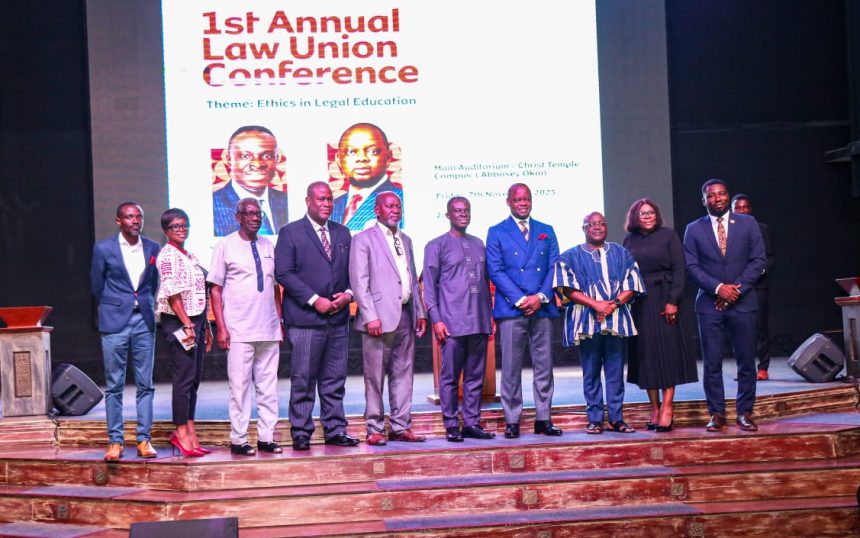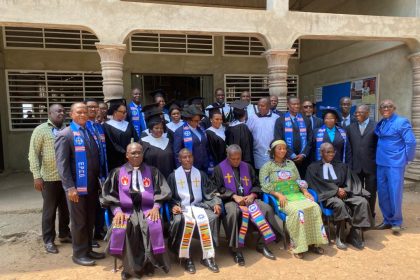Dr Justice Srem-Sai, Deputy Attorney-General, has called for a renewed focus on ethics in Ghana’s legal education to bridge the gap between academic training and professional practice.
He said although law students acquired sound theoretical knowledge, the disconnect between what was taught in the classroom and practised in the field raised fundamental ethical questions about the profession’s moral grounding.
Dr Srem-Sai was speaking at the First Annual Law Union Conference of the Central University organised by the Faculty of Law on the theme: “Ethics in Legal Education.”
He said ethical concerns within the legal education system often begin at the point of admission, where perceptions of favouritism and influence undermine the integrity of the process.
He said people believed that they needed to know someone in higher places to be admitted to a law programme but such perceptions though not always true eroded trust and distorted the values that should define the legal profession.
He said similar allegations persisted at the professional law school level, where some students believed success depended more on connections than merit.

“Law students are often made to believe from day one that it is not even about merit, but about whom you know,” he said.
Dr Srem-Sai explained that ethics went beyond rules and regulations to the deeper questions of conscience.
“In ethics, you might not catch one saying that the man is guilty when he violates the rights of others. In ethics, he is guilty if he even thinks of doing so. Ethics is about your conscience,” he said.
He observed that ethics had evolved with time but insisted that the distinction between right and wrong remained constant.
“What is good is good throughout all ages, and what is bad is bad throughout all ages. You do not have to succumb to the pressures of today,” he added.
The Deputy Attorney-General said ethics must not be treated as a mere theoretical course but integrated into every aspect of legal training.
He urged law schools to introduce ethical reasoning from the first year of study and use practical case discussions to train students in real-life decision-making.
“Our ethics lectures should be practical. We should bring live cases to class because one thing we avoid teaching is what we call data clinics. These are not interested in theories but the practicality of what is being taught,” he added.
He encouraged lecturers to help students understand the reasons behind moral judgments rather than merely quoting legal or religious authorities.
“If our ethics classes are going to be effective, we must help students understand why something is good or bad and allow them to exercise their sense of judgment,” he said.
Professor Samuel Kwasi Dartey-Baah, the Vice-Chancellor of Central University, said Ghana needed more African lawyers who will serve as advocates of progress.

He said lawyers were not merely advocates but also defenders of the rights that sustain workers and crafted the laws that protect the environment, women, and the vulnerable.
He said to build a just and prosperous Ghana, there must be lawyers in every district, every assembly, and every reform committee.
He called for a national commitment to expand access to legal education, strengthen professional ethics, and uphold integrity as a cornerstone of the rule of law.
GNA






